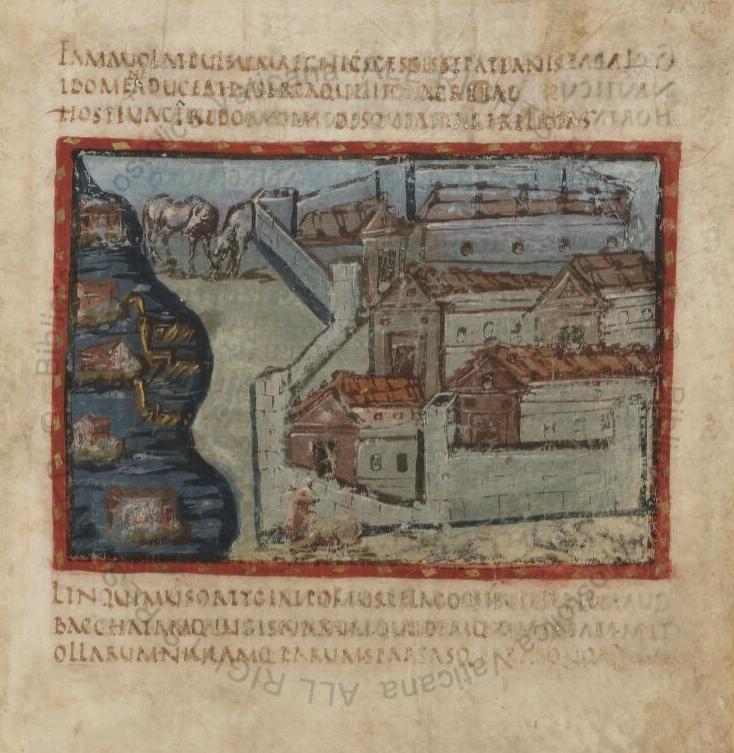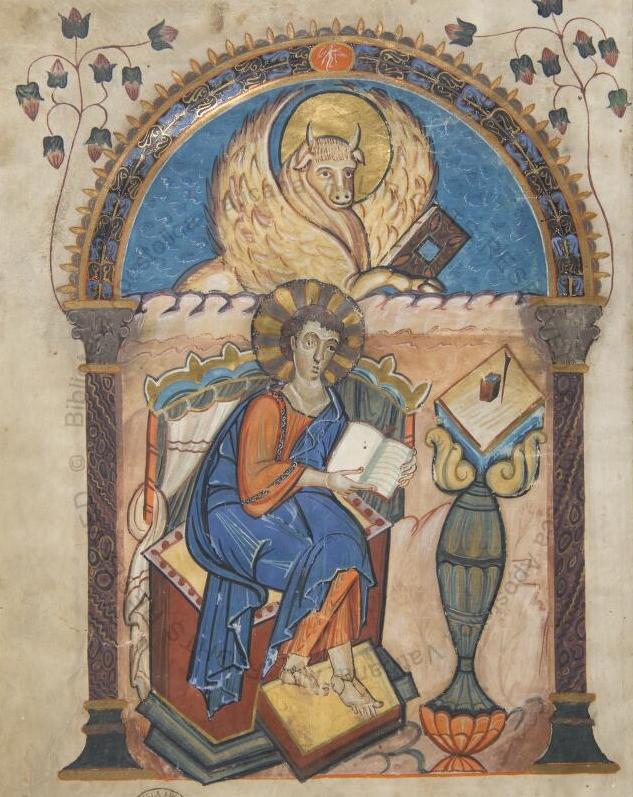The Vatican Library Goes Online and Digitizes Tens of Thousands of Manuscripts, Books, Coins, and More

If any one of us ran our own country, we'd surely drive no small amount of resources toward building an impressive national library. That would be true even if we ran a country the size of the Vatican, the smallest sovereign state in the world — but one that, unsurprisingly, punches well above its weight in terms of the size and historical value of its holdings. "It was in 1451 when Pope Nicholas V, a renowned bibliophile himself, attempted to re-establish Rome as an academic center of global importance," writes Aleteia's Daniel Esparza. That formidable task involved first "building a relatively modest library of over 1,200 volumes, including his personal collection of Greek and Roman classics and a series of texts brought from Constantinople."

The Vatican Apostolic Library, known as "VAT," has grown a bit over the past five and a half centuries. Today it contains around 75,000 codices and 85,000 incunabula (which Esparza defines as "editions made between the invention of the printing press and the 16th century") amid a total of over one million volumes.
And in the case of increasingly many of these documents, you no longer have to make the journey to Vatican City to see them. Thanks to an ongoing digitization project launched a decade ago, increasingly many have become searchable and downloadable on DigiVatLib, a database of the Vatican Library’s digitized collections including not just the aforementioned codices and incunabula but "archival materials and inventories as well as graphic materials, coins and medals."

Back in 2016 we featured a digital collection of 5,3000 rare manuscripts digitized by the collection, including the Iliad and Aeneid as well as Japanese and Aztec illustrations. The VAT's scanning, uploading, and organizing has continued apace since, and though it prioritizes manuscripts "from the Middle Age and Humanistic period," its materials taken together have a wider historical and indeed cultural sweep, one that only gets wider with each page added. You can get started exploring this wealth of documents by scrolling down a little on DigiVatLib's front page, in the middle of which you'll find the latest digitized materials as well as a host of selected manuscripts, a few of whose pages you see above. The VAT has enjoyed its status as one of the chief repositories of Western civilization longer than any of us has been alive, but we can count ourselves in the first generation of humanity to see it open up to the world.
Related Content:
1,600-Year-Old Illuminated Manuscript of the Aeneid Digitized & Put Online by The Vatican
How the Mysteries of the Vatican Secret Archives Are Being Revealed by Artificial Intelligence
Based in Seoul, Colin Marshall writes and broadcasts on cities, language, and culture. His projects include the book The Stateless City: a Walk through 21st-Century Los Angeles and the video series The City in Cinema. Follow him on Twitter at @colinmarshall or on Facebook.
The Vatican Library Goes Online and Digitizes Tens of Thousands of Manuscripts, Books, Coins, and More is a post from: Open Culture. Follow us on Facebook, Twitter, and Google Plus, or get our Daily Email. And don't miss our big collections of Free Online Courses, Free Online Movies, Free eBooks, Free Audio Books, Free Foreign Language Lessons, and MOOCs.
from Open Culture https://ift.tt/2tzRLDa
via Ilumina
Comments
Post a Comment